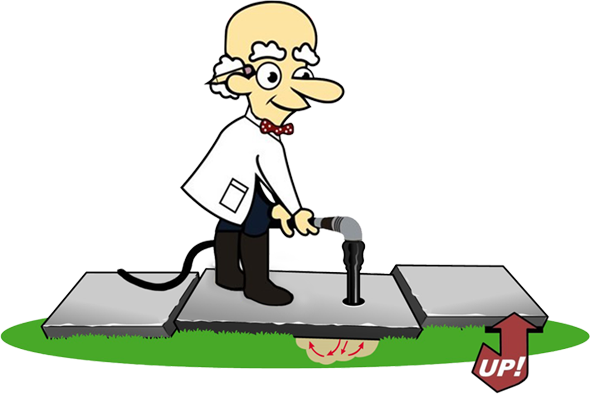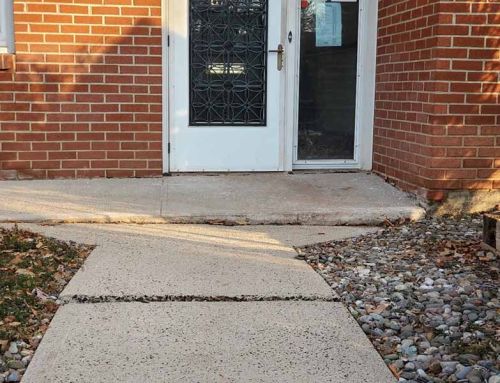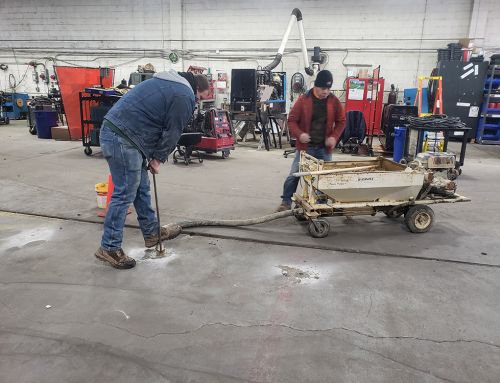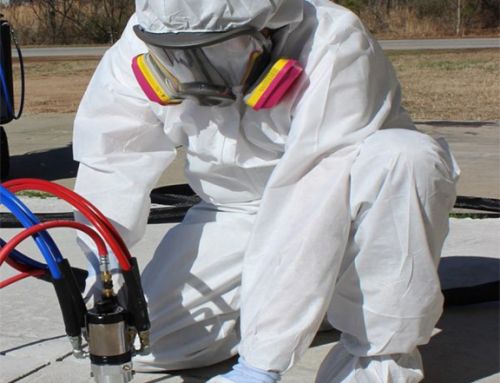IN THIS ARTICLE
When it comes to concrete leveling repairs, many companies claim their way of lifting sunken concrete is superior because their material weighs less, whether lightweight polyurethane foam or a heavy mixture of mud, sand, and cement. However, decades of experience in the industry, along with factual studies, numbers, and information, show that many concrete leveling material claims do not hold weight when lifting concrete.
Concrete Chiropractor has found that the concrete leveling material’s weight does not matter. In this article, we will discuss why product material weight is insignificant and the critical factors to consider when choosing the right product and company to raise your concrete for a durable, long-lasting concrete repair solution.
We separate the marketing hype to provide you with facts so you can make an informed decision as we have when choosing which product to offer our customers.
Here is why material weight is just marketing tactics and hype:
1. Product Weight Comparison
Cement grout material weighs roughly 150 pounds per cubic foot. Polyfoam weighs 4 pounds per cubic foot.
The average soil weight-bearing capacity is 1,500 to 3,000 pounds per square foot. What does this mean?
The numbers prove that whether lighter polyurethane foam material or heavier mud jacking material is used, stable base soils will support up to thirty times the weight of any concrete raising material in addition to your existing concrete!
The average weight of a 4” thick concrete slab is 50 pounds per square foot
The average weight of 4” of concrete leveling grout is 50 pounds per square foot
The average weight of polyurethane foam is 1.33 pounds per square foot
Example:
One square foot of soil supports a minimum of 1,500 pounds
Concrete weight – 50 pounds
Mudjacking grout weight – 50 pounds
Poly leveling foam – 1.33 pounds
With all “Three” products, the soil will still support 1,398.67 Pounds!!!

As you can see when comparing the actual weight of concrete leveling materials to soil-bearing capabilities, product weight is not a significant factor.
2. A two-story home weighs 240,000 to 360,000 pounds, with an average weight of 275 pounds per square foot. Why does it not settle like my concrete slabs?
The answer is simple. Your home is supported by a footing not placed on disturbed soil!
During the initial stages of excavation and construction of your home, preparations are made to install your home on a foundation. This excavation involves digging and disturbing soils to a depth required to construct your home on footings along with a basement foundation or slab. The footings that support your home rest on undisturbed soil, so the house and structure will not typically settle. Some factors can cause your home to settle, such as improperly installed footings or particular areas of the country known for unstable soils and sinkholes. Concrete leveling with either Mudjacking or concrete lifting foam is not recommended as a repair method for foundation settlement.
3. Why Is My Concrete Sinking if It Is Not Due to Weight? Why Will a Lighter Poly Foam Not Prevent Settlement?
Regardless of the concrete lifting material injected under your concrete slab, it will NOT prevent soil settlement. The product is merely resting on the soil base along your concrete slab. Proper compaction of backfilled soils is a crucial step in helping to prevent concrete slab settlement that is often skipped. It can take an average of 5 to 10 years for disturbed soils to settle and reconsolidate, depending on the depth of the fill, type of soil, ground moisture, and other factors. For proper soil reconsolidation, there is no way to accelerate or shorten the process post-construction, and nature must take its course. While removal of the concrete slab and installing piers may be possible, it is not an economically feasible option compared to the cost of concrete leveling.
What is The Best Option to Raise Settled Concrete?
First, consider the following facts:
Soil disturbance is the leading cause of concrete settlement. Concrete leveling material weight is not a significant factor compared to soil-bearing capabilities. Concrete and any concrete lifting product will continue to sink and settle until the full soil reconsolidation has been completed. What material supplier and industry is it serving to market and sell you a specific product to raise your concrete?
Your Next Steps
Consult with a concrete leveling company you can trust based on years of experience and positive reviews for a professional evaluation, such as Concrete Chiropractor. While concrete leveling is a fantastic process that can save a significant amount of time and money, it is not for every application. We will provide a free consultation and determine if raising your concrete is your best option.
For more information, visit the Concrete Chiropractor Learning Center.
- Garage Floor Raising and Coating: The Ultimate Guide - June 4, 2024
- Mudjacking Cost: 5 Factors That Affect It - April 10, 2024
- What is The Average Cost of Concrete Leveling in Belle Mead, NJ? - April 4, 2024







